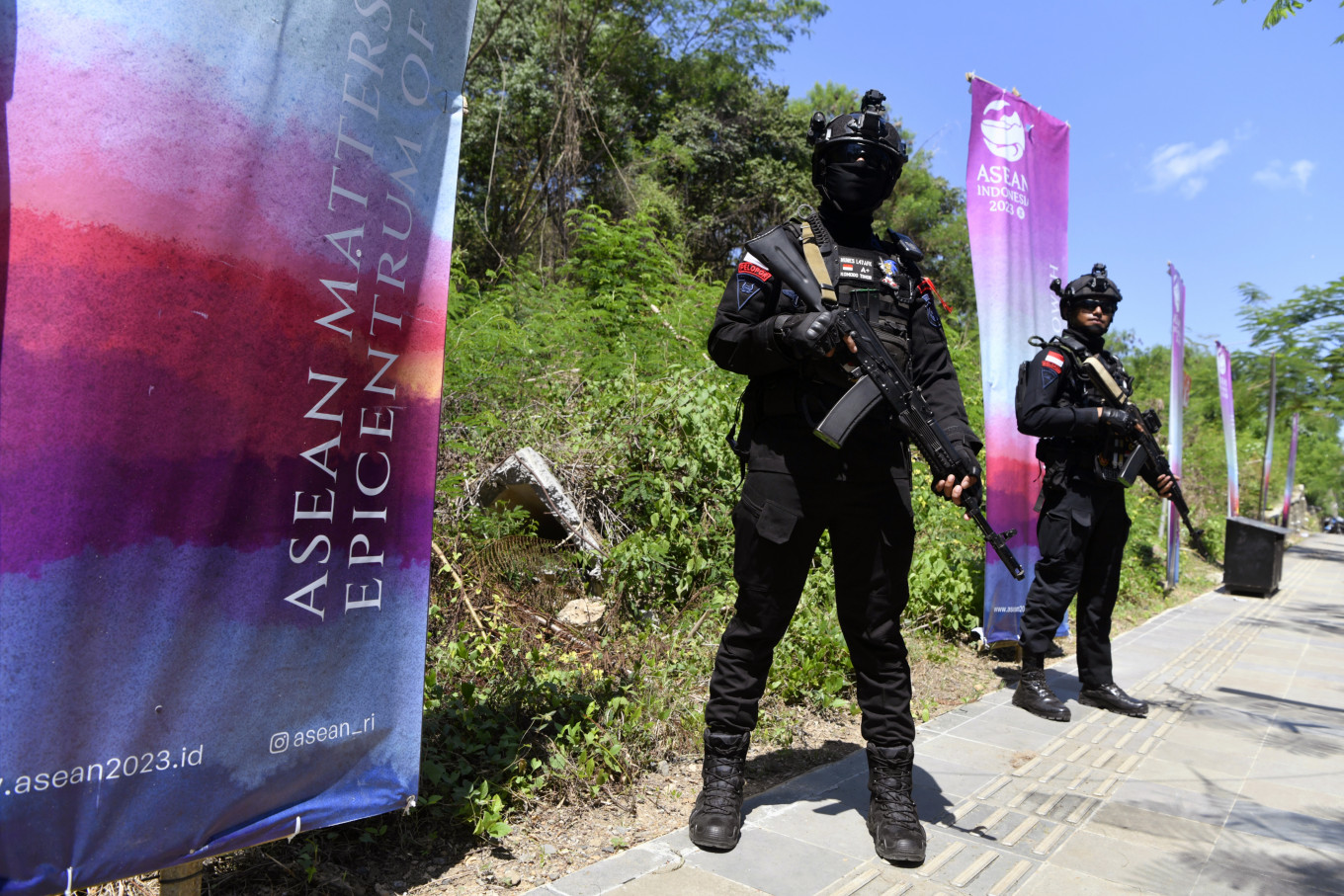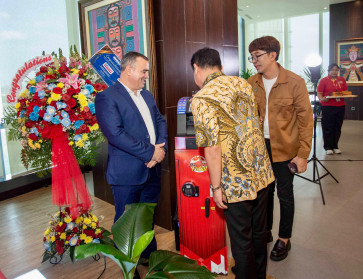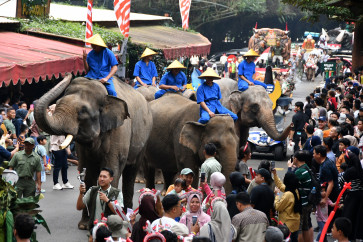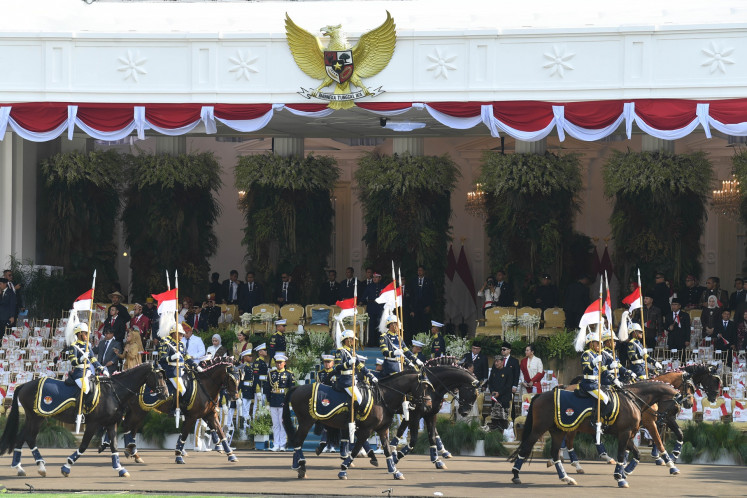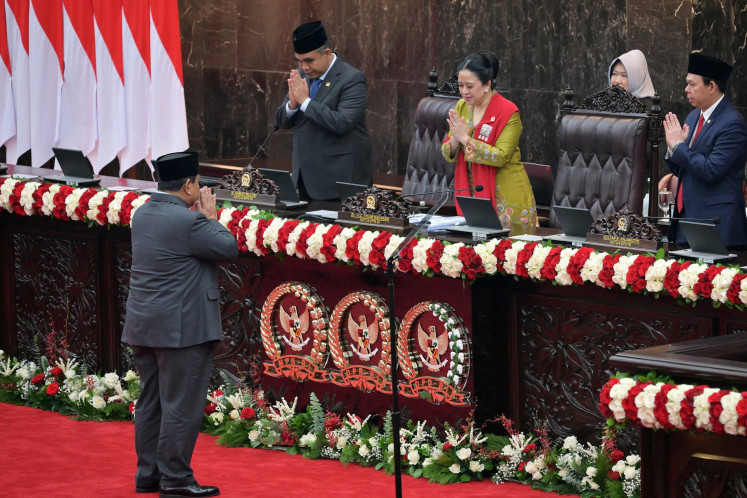Popular Reads
Top Results
Can't find what you're looking for?
View all search resultsPopular Reads
Top Results
Can't find what you're looking for?
View all search resultsASEAN Summit and development in Labuan Bajo
In the community’s view, the government’s decision to bring in private companies to the Komodo National Park is just another strategy to relocate them outside the park.
Change text size
Gift Premium Articles
to Anyone
U
nder the theme “ASEAN Matters: Epicentrum of Economic Growth”, the ASEAN Summit this week incorporates three underlying principles, strength, inclusivity and sustainability, wherein the public is convinced by the commitment of the parties to prioritize sustainable development throughout ASEAN states.
As already explained in various pieces of literature, sustainable development itself encompasses several principles that rest on environment preservation, local economy and embracing local culture.
It is not such a coincidence therefore that Labuan Bajo, a small town in the westernmost part of Flores Island in East Nusa Tenggara, was chosen as the venue of the ASEAN Summit. I contend that Labuan Bajo is a location par excellence to digest the profound meaning of the ASEAN Summit, since it sets sustainable development in its very core agenda.
We can take a closer look at these two following reasons. On the one side, as is broadly known, in recent years, Labuan Bajo has been designated as a new epicenter of economic growth that relies on tourism investment. This means the government commits to generating income through investment-led tourism.
Besides the event itself, holding the ASEAN Summit in Labuan Bajo is certainly a golden opportunity for the government to widely promote Labuan Bajo’s tourism with Komodo dragons as the center of attraction.
However, on the other side, industry-based tourism in Labuan Bajo has instead brought about devastating effects on the environment and local community life. Notwithstanding broad criticism, the government has not yet paid attention to this public issue.
Situated within this context, based on my intensive engagement with the local community in Labuan Bajo and the surrounding areas in the last five years, there are several issues that have long become a public concern in Labuan Bajo and beyond. Central to those pieces of evidence is a deep question on the future of sustainable development, in which the ASEAN Summit is anchored.
First, the public critique of conservation and just tourism economics inside the Komodo National Park (KNP). On behalf of world-class tourism, the Indonesian government has transformed the KNP into a new frontier of tourism investment in recent years. This is implemented through a package of policies that bring in private and state companies to invest in the KNP. At present, the government has granted permits to three private companies to build exclusive resorts in the park.
This new model of developing tourism has had at least three negative impacts on the park. First and foremost, large-scale construction will jeopardize conservation as the KNP is the sole natural habitat for the long-surviving lizard Varanus komodoensis.
On the other aspect, this policy also hinders fair distribution of tourism income with local tourism actors that mainly rely on community-based tourism.
Last but not least, this new model of developing tourism threatens the indigenous community that inhabits the park with future displacement. This controversial plan has even been blatantly stated by the government in 2019. At that time, in the name of turning Komodo Island into the site of a world-class tourism destination based on conservation, the government intended to relocate the Ata Modo people, the indigenous community on Komodo Island, from their ancestral land.
Although the community managed to fend off the plan through a wave of public protests, the government has not guaranteed there will be no community relocation, if not eviction, in the future. In the community’s view, the government’s decision to bring in private companies to the KNP is just another strategy to relocate them outside the park.
Second, another point that needs to be considered is the rampant privatization of beaches in Labuan Bajo. To pursue high income from the tourism business, hotel operators in Labuan Bajo have endeavored to reap benefits from their strategic position lying along the coastline. By occupying shore areas, these accommodation businesses offer gorgeous sea views to tourists. However, this sort of development has jeopardized the preservation of the beach ecology and the fishing community’s livelihood.
Third is the forced deforestation to develop the new site of tourism investment. In April 2023, several communities around Labuan Bajo were shocked by a sudden flood. They said the disaster was the first to strike in years. Later on, the community blamed the government’s construction of a new tourism business zone in Bowosie Forest, located on the top of Labuan Bajo, for causing the flood. To allow the construction of exclusive resorts that will be managed by investors, the government has converted the status of the forest, which used to cover 400 hectares.
Considering the particular context of Labuan Bajo, participants in the ASEAN Summit need to discuss the issues of future conservation of biodiversity, privatization of beaches and deforestation in Labuan Bajo as the real impacts of the goal to make ASEAN the new epicenter of economic growth.
Failure to table the three issues will render the ASEAN Summit as simply a ceremonial event with little public impact.
***
The writer is a researcher at Sunspirit for Justice and Peace, Labuan Bajo, and a PhD researcher at the Department of Southeast Asian Studies, Bonn University, Germany.

